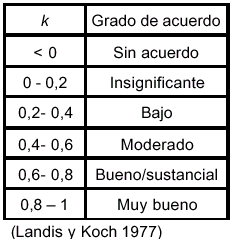You never again see the skin when looking through a dermatoscope. What at first seems becomes soft and smooth on the surface of an alien planet reliefs and structures of questionable rough beauty increasing n times its size.
The pixel is the smallest unit of digital imaging. Picture quality requires a pixel size small enough to just appreciate the whole. If the pixel is too large the image will be pixelated and of poor quality. Our vision is limited. If we had a better view would need better screens and cameras to get a sense of image quality. Therefore, we see only what we are designed to see.
To see an impressionist painting need to get away for the retina capture the overall picture. The brush strokes are thick as a bad pixel camera and need to understand the image distance. Not always be close to help in the analysis of reality.
realistic painters painted shades of gray because "culturally" the shadows are gray, but need not be, depending on light, background object's shadow, the shadow will have a color. Realists just trying to reflect reality, as he saw it, and yet despite it being his intention, if any front, painted gray, as dictated by the canons, as everyone expected to see a shadow, as they believed her.
Realists painted what they thought they saw and health professionals diagnose what we see. Some call us inventors of diseases, and in part I agree, but not for the conspiracy of the pharmaceutical industry (also) proclaims the book Jörg Blech, simply because our bias of reality, our professional filter. Rarely do we say to our patients is something new. The guidelines, advice and recommendations also served for others. We know that every patient is different, but that is not operating. Knowing a diagnosis involves labeling patients with the diagnosis. If that diagnosis is not known does not matter: it shall be labeled with another diagnosis. That's right.
In observation one has to know what to watch. Bringing attention to something already an observational bias. Look at what we know. But as a student is taught to observe? Indicating where it should look. There is no other way. If not see nothing. Not even know if what you see is relevant.
The concept of reality is linked to the concept of consciousness. The reality is all that is known or unknown, conscious or unconscious. The operational reality is always skewed by the fact of being limited to consciousness. It is our perception of reality, whether personal or communal empirical, scientific. Is what today we mean by real.
The phenomenology is the science that studies the relationship between facts (phenomena) and the area where this is present reality (consciousness). Every object is a phenomenon visible, the perceptible reality is phenomenal or phenomenological reality. perceptible only if it is real. Despite the momentous philosophical context of the real tangible vs mythological beliefs and religious structures of phenomenology, the truth is that perception does not ensure the reality. Science follows the Cartesian phenomenological model and the evidence. The next challenge of science is to eliminate observational bias of perception.
There is always variability inter-observer. The inter-observer agreement can be calculated using the kappa coefficient . However, as the article says, two observers may have a nearly perfect diagnostic agreement (κ ≠ 0.80 to 1.00) and concordantly be mistaken about the actual diagnosis.
Our knowledge conditions and limits. The greater the knowledge we have better vision. To find out about something, we need to devote time to this portion of Conon. We super-specialized. The problem to spend too much time looking at this is that you lose perspective. If we get to see the brush box. If we turn we see the whole picture. But sometimes you have to move away from the table even further, to see how it looks on the wall, or maybe get out of the room to view from outside.
" If you contemplate the sky from the bottom of a well, you'll find small" Han Yu
Watch our prejudices, we will see the dark shadows, forward events and jumping to conclusions.




0 comments:
Post a Comment